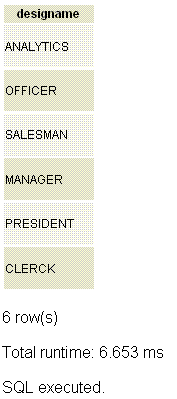
In this case, number had the exact value of 100, so the rows were ordered according to the following attribute, i.e., id. Therefore, the rows will automatically be ordered according to the following attributes. If we analyze it, we can see that it does not disturb the results of the duplicate rows because the leftmost attributes will have the same values. PostgreSQL requires that the leftmost attribute or attributes specified in the ORDER BY clause must match those written in the DISTINCT ON clause. The SELECT DISTINCT statement is used to return only distinct (different) values. While fetching such records, it makes more sense to fetch only unique records instead of fetching duplicate records. DISTINCT is used to remove duplicate rows from the SELECT query and only display one unique row from result set. There may be a situation when you have multiple duplicate records in a table. PostgreSQL Distinct Clause Syntax: SELECT distinct columnname from. However, you must have noticed that even though we wanted to order the rows according to id, we still specified number as the first attribute in the ORDER BY clause. The PostgreSQL DISTINCT keyword is used in conjunction with SELECT statement to eliminate all the duplicate records and fetching only unique records. PostgreSQL Distinct Clause eliminates duplicate rows from the select query result set.


We can see that now the last row is displayed as the only repeated occurrence.īecause we ordered the rows in descending order according to id, the last row having id as 4 appears first and is treated as the first occurrence. SELECT DISTINCT Syntax SELECT DISTINCT column1, column2. Inside a table, a column often contains many duplicate values and sometimes you only want to list the different (distinct) values. SELECT DISTINCT ON (number) * FROM exampleĮxecuting this query gives us the following output: The SELECT DISTINCT statement is used to return only distinct (different) values.


 0 kommentar(er)
0 kommentar(er)
